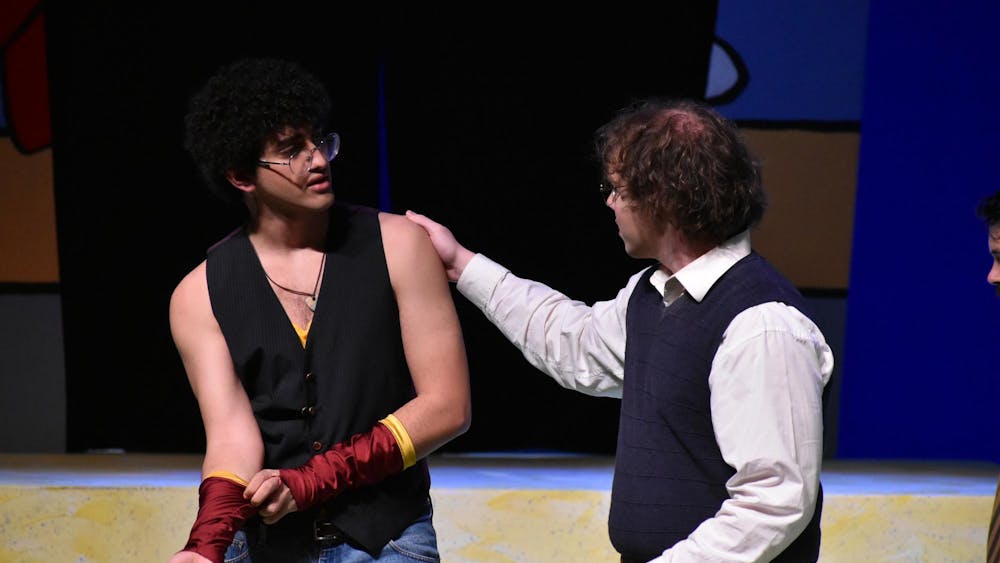This week marks the 25th anniversary of the first appearance of TV’s most iconic family, “The Simpsons,” on the “Tracy Ullman Show.” Take a moment to think about how old that makes you feel.
Countless essays tell the story of the family living at 742 Evergreen Terrace and this is a daunting column to write because what could I say about “The Simpsons” that hasn’t already been said?
While I can proudly say I’ve seen every Simpsons episode ever made (many more than once), and could likely go round for round in some kind of trivia knowledge contest against anyone short of the Comic Book Guy or the nerds Homer lived with at Springfield University, it’s hard to have something original to say about a show that’s been around longer than I’ve been alive.
But there’s something about the show that has always captivated me, and I finally got a grasp on what it was a few years ago in a high school literature class.
Aside from being extraordinarily clever and enjoyable, “The Simpsons” is a cultural phenomenon. I don’t mean phenomenon like “American Idol” is a ratings phenomenon. I mean “The Simpsons” is actually a vital piece of American culture.
If you aren’t at least conversational in Simpsons, you miss a lot of references in other media and probably
can’t understand half the conversations you’re in.
The Simpsons are such a big part of our culture that comparing someone to Homer or Bart requires no explanation.
When we test to see if people know enough about our Constitution, we ask if they can name the five freedoms in the First Amendment and then ask if they know the five members of the Simpson family. (Go ahead and see how you do.)
So the realization I had in that literature class is that “The Simpsons” are actually akin to Shakespeare and the Bible.
In earlier periods, writers would quote Shakespeare or the Bible often and would do so subtly. If you didn’t know your stuff, you missed everything. Go ahead and read 17th or 18th century literature or essays. You won’t be able to without falling all over Bible references so obscure that Reverend Lovejoy might not even understand
them. But in that time, everyone understood them because the Bible was so widely read.
That’s “The Simpsons” today. To be culturally literate in America, you have to know “The Simpsons.” That’s amazing and rare. I’m hard pressed to find any modern equivalencies.
Over the last 25 years, “The Simpsons” has become a hallmark of our cultural education. Its staying power and its relevance are unmatched even as the quality wanes in the show’s third decade.
I’m a fan of the show, but I’m also a cultural observer. Not knowing “The Simpsons” in the ‘90s, 2000s and ‘10s is like not knowing anything about baseball in the 1930s. It runs alongside the story of the country to the point that you can’t separate the two.
I won’t pretend to be an expert on every era of cultural history, but I imagine few things rival the Bible and Shakespeare the way “The Simpsons” does.
Religious scholars and Shakespeare aficionados might be saying “Ay caramba” that I’m comparing a cartoon to their beloved works, but it’s hard to challenge the degree to which Springfield’s most famous fivesome have blended with our consciousness.
So take some time to watch your favorite episodes and make subtle jokes about onions on your belt “being the style at the time,” but also consider the power of the show that first ran in and sat on a couch 25 years ago this week.









